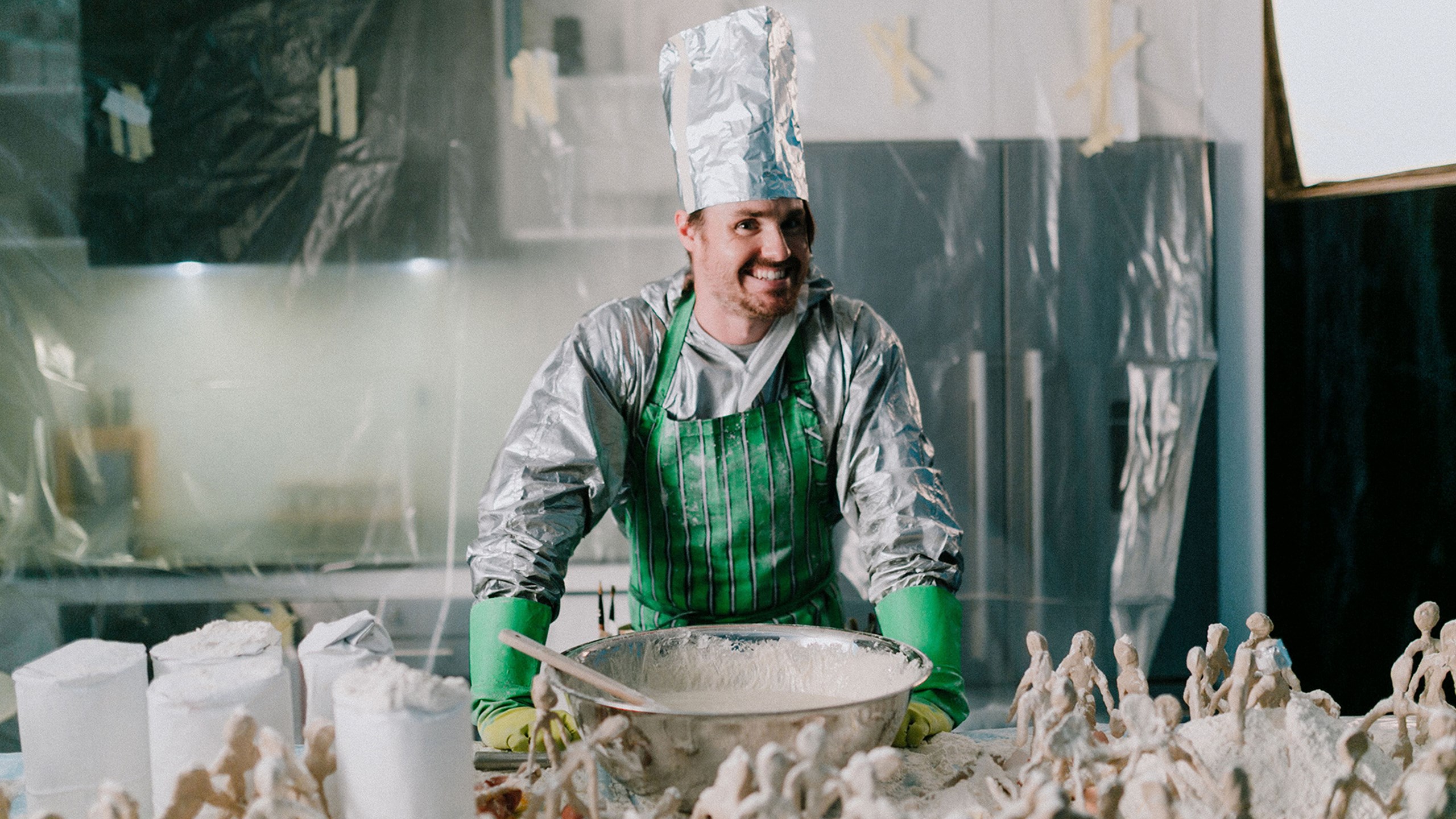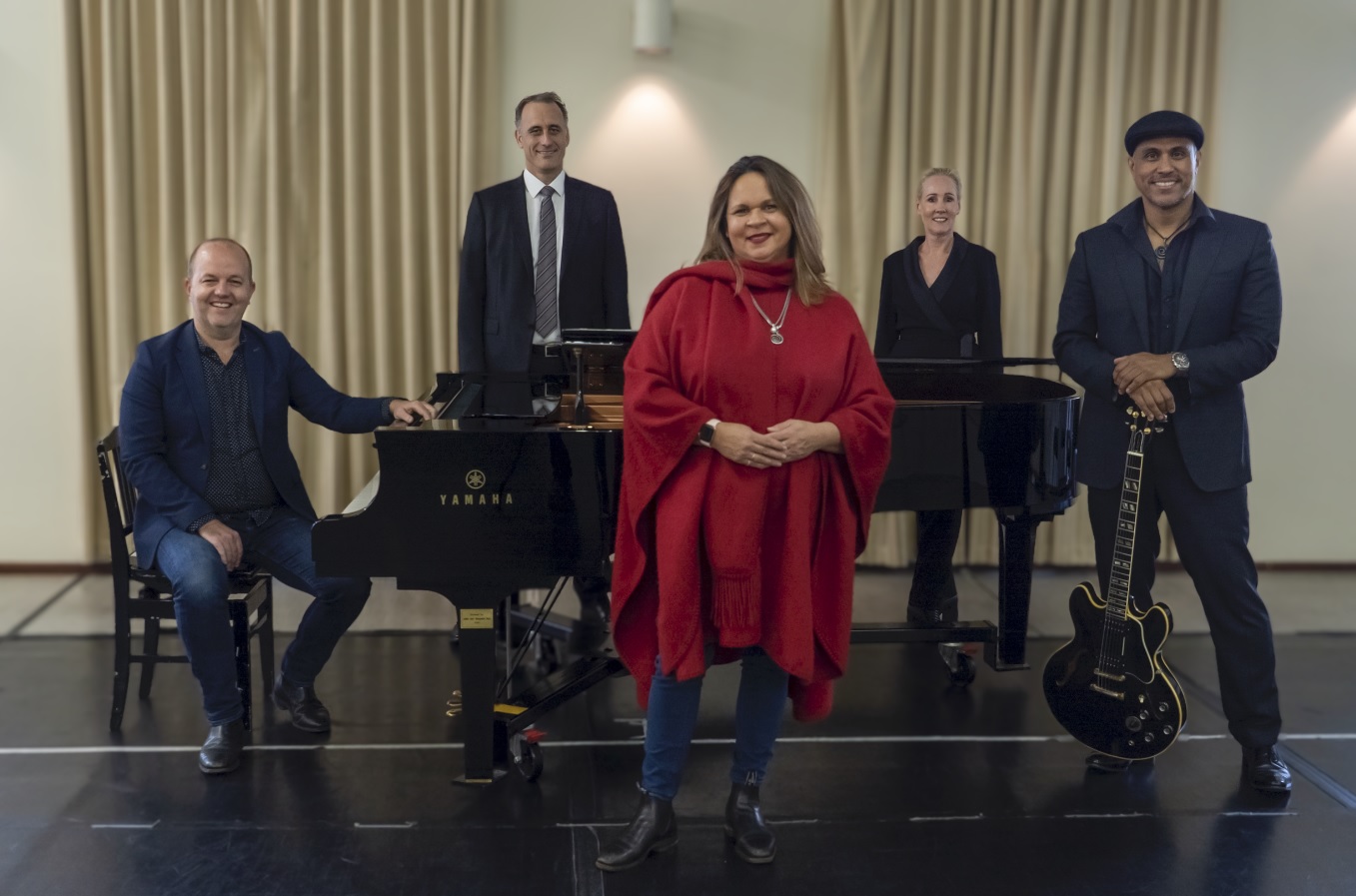WAO Ghost Spotlight with Lachlann Lawton
For all the challenges brought forth by this period, it has sparked fierce creativity in our approach to performing and sharing opera. As we near a new environment combining the physical and digital, we want to shine a spotlight on our creatives working in the Ghost Light to bring the magic of opera to you. Connect with your state opera company on an intimate level and glimpse the preparation, activity and agility required behind the scenes.
This week, join us with Wesfarmers Arts Young Artist Lachlann Lawton as he describes his first experience with film through The Telephone, the adaptability of opera as an art form, and his dedication to both exercise and music.
1. Tell us about your experience working on The Telephone – how does it compare to performing for a live audience? Were there any new or unexpected challenges?
Working on The Telephone was a fantastic experience that opened my eyes to a different art form I hadn’t been exposed to before. The cast and crew were all amazing people who were committed and hard working right to the final few shots, and it was a pleasure to be involved in something so professional.
At first, the rehearsal process felt like any other show: learn your music, sing it with the music director from beginning to end, enter the stage rehearsals with the director, and talk about the characters and their journeys throughout the piece. We then moved onto the film set where we broke down which parts of the opera needed to be done in certain positions on set to capture the shots that were wanted. We did this with the film director, camera operator, designer, lighting operator, stage director and sound manager. Unlike rehearsing for a stage production, we didn’t go from start to finish – we chose parts that needed to be filmed close together, then filmed them out of the context of the piece. It was interesting for me having to jump to certain points in a character’s journey without the build from previous scenes to aid my motivations as the character. Another part of the process I wasn’t aware of was the pampering that you receive from the hair, makeup and costume personnel. They were always there behind the scenes, in between shots making sure my makeup was still correct and that my costume and hair were in the correct position for each different take – they did a fantastic job.
2. To what extent do you think opera can reflect the challenges and triumphs of our current existence?
It has been said that an artist’s job is to comment on society and its issues. Opera can still reflect the challenges of our current society. One example of this is by modernising and adapting productions, and retelling stories that still have meaning today. For instance, we’ve adapted The Telephone to portray our society’s need for interaction and approval whilst having a dependence on hand-held devices. It makes the art form relatable to people of today because they can see their own personal issues up there on the stage being sung about in a familiar setting.
Opera has also always been about complex relationships played out on stage. Whether they be romantic, political or spiritual, opera explores relationships at their most heightened levels and settings. Those relationships still exist in society today between all different people, which means that opera can offer people a reflection of themselves and something to connect with.
3. What has working in the “ghost light” meant for you? What do your days look like?
Working in the “ghost light” to me has meant being ready for any performance opportunity that comes my way in this pandemic period. In our industry, opportunities to perform can be difficult to come by at the best of times. Being consistent at the things you can control like practicing, learning repertoire, staying involved with music and keeping your mind active will keep you prepared.
My day typically starts with a coffee and looking at the world’s events on my laptop, followed by an hour or so of study for my Cert 4 in Personal Training that I’m taking online. Next will be music preparation, either for upcoming performances or new repertoire for auditions in the future. I love to keep my body active, so I’ll work out for an hour and a half every day. I like having hobbies that are outside of music to help refresh and recharge my brain.
4. What’s been the easiest adjustment during this time? And the hardest?
The easiest adjustment for me was working out what to do with all my sudden free time. It was easy for me to work out what I needed to do to stay productive because I had been following a similar routine in the UK when I was between performance work. Being prepared is the key. The hardest thing for me was not being able to see my friends or family during this time. I’m quite a social person and love to catch up with people for coffee and find out how their life is going, so I used exercise to keep me from going stir crazy.
5. What have you learned about yourself during this period?
That I go absolutely nuts if I have to stay inside all day without being able to do some sort of exercise outside.
6. What have you been watching, reading, playing, singing or listening to recently?
We have a WAO Young Artist opera book club where we each pick an opera on a weekly basis to talk about the following week. It’s been great to stay connected to opera and listen to some amazing singers. Apart from opera, I’ve enjoyed watching different anime series with my girlfriend Chelsea, such as Attack on Titan, My Hero Academia and Tokyo Ghoul. I also enjoy playing games on my Xbox and have been attempting to get good at Tom Clancy’s The Division.
7. As restrictions are now eased, what’s on top of your to-do list?
Top of my to-do list is catch up with the friends and family that I haven’t been able to see. Also to find a new gym to join.
ABOUT LACHLANN LAWTON
Lachlann Lawton is a Western Australian Baritone and a 2020 Wesfarmers Arts Young Artist with West Australian Opera.
Lachlann completed a Master of Music at the Royal Northern College of Music in Manchester and studied with esteemed baritone Quentin Hayes. At the RNCM Lachlann performed the roles of The Pilgrim (The Pilgrims Progress), Marco and cover Gianni Schicchi (Gianni Schicchi), Peter (Hansel and Gretel) and Escamillo (Carmen).
Lachlann completed a Bachelor of Music in Classical Performance and a Graduate Diploma of Music at the Western Australian Academy of Performing Arts under the teaching of both Patricia Price and Michael Lewis. Whilst at WAAPA, he performed the roles of Giorgio (La serva e l’ussero), Professor Bhear (Little Women), Peter (Hansel and Gretel), Demetrius (A Midsummer Night’s Dream), and Sid (Albert Herring).
In 2017, Lachlann was a member of the Western Australian Opera chorus before moving to Manchester.
Lachlann is also a fitness enthusiast and is studying with the Australian Institute of Personal Trainers (AIPT) to gain a certificate 3 and 4 in personal training so he can help other opera singers stay physically fit and avoid tension, with specific workouts designed by himself.


